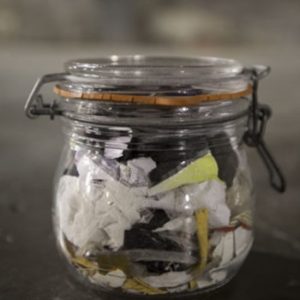Zero Waste is Not Recycling More, But Less

Reduce, Reuse, and if it has to be disposable then make sure it’s made from Renewable plant material. Recycle and Landfill are definitely last resorts to waste management. The majority of people think that Zero Waste is achieved by recycling as much as possible. It’s probably the most common misconception associated with waste-free living!
The term zero waste was first used in the mid-1970s, in the early noughties zero waste gained publicity in particular from 1998 to 2002. And to this day the debate continues about the value and environmental impact of bioplastics.
One side argues that biodegradation of plastic is wasteful because plastic is expensive and environmentally damaging to make. Whether made of starch or petroleum, the manufacturing process expends similar energy costs. Factories are built, raw materials procured, investment made, machinery built and used and human labour employed. Even if plastic biodegrades after single use, all of those costs are lost so it argues that it is more important to design plastic parts for multiple reuse. The other side argues that keeping plastic out of landfill and the sea is far more important and hence the sole benefit of interest. We strongly agree with the latter as we all know the impact of growing landfills and plastic in our seas.
Benefits of a zero waste philosophy
- Money saving: Waste is a sign of inefficiency so the reduction of waste can in fact reduce costs.
- Innovation: A zero waste strategy improves production processes and environmental prevention which can prompt increased innovation.
- Supports sustainability: A zero waste strategy supports three of the primary goals of sustainability:
- Economic well-being
- Environmental protection
- Social well-being
- Reduced strain on raw materials: A zero waste strategy uses noticeably fewer new raw materials and reduces the volume of waste sent to landfills.
Bea Johnson of Zero Waste Home, author and advocate for a Zero Waste lifestyle speaks internationally on this topic and other environmental issues affecting our planet. Johnson will be in South Africa in May, catch her at the Two Oceans Aquarium on Friday 5 May 2017.
Our own Catherine Morris speaks on environmental issues locally. Contact us to find out more. She recently provided commentary at the 4th Annual Eco Film Festival held in Cape Town this month.
